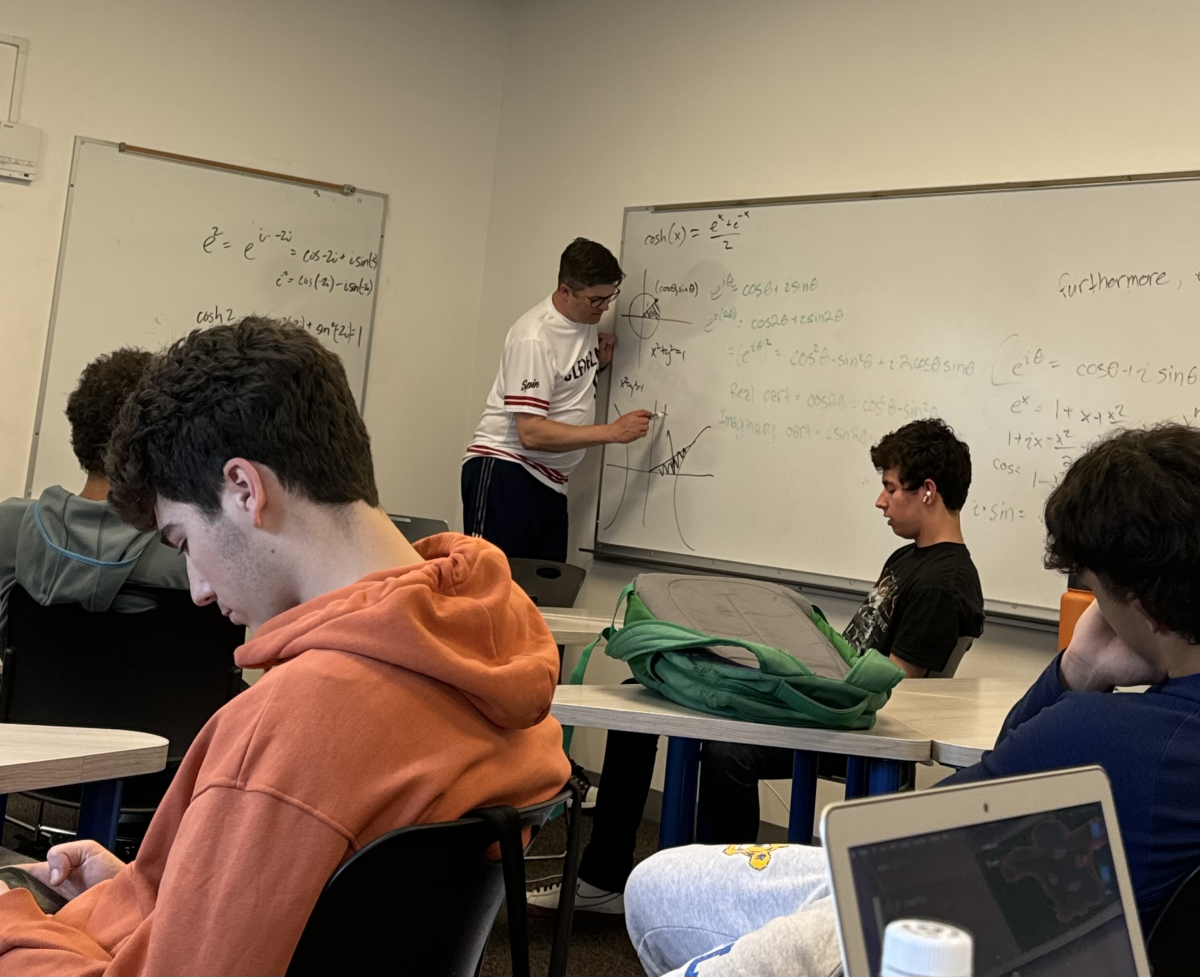As the school year concludes, senioritis spreads through the Class of 2024 almost as intensely as COVID hit the world more than four years ago.
Triggered by the siren call of summer break and the impending thrill of college, senioritis challenges senior students and teachers alike to navigate the delicate balance between celebration and commitment.
Senioritis is often characterized by dwindling motivation, increased procrastination, and in some cases, even a decline in academic performance.
Senior Nisa Ahmed said, “I got into school [Early Decision], so I’ve had [senioritis] for a little longer. But I think it’s more intense now that everyone’s gotten into college. The year’s coming to a close, but I’m still getting work, and I don’t feel motivated to do it. It feels optional in a way, even though it’s not.”
Senior Phoebe Koehler has also found it difficult to find motivation, but she has approached her schoolwork differently. “I’d like to think of myself as a certain kind of student, and I want to uphold that version of myself even though the extrinsic motivation is not there anymore,” she said.
Nisa finds motivation through her desire to finish the year strong. “I think back to how I start[ed] at the beginning of the year and how I want to end it. I don’t want to fall off just because I got into the college I wanted,” she said.
For senior Michael Cardoza, his motivation partly comes from his teachers. “I still try to put in the effort [because] my teachers deserve my full attention.”
However, he has eased up on certain classes. “I no longer do optional homework for math,” Michael said. “I have taken my AP Statistics exam, so I have no reason to do any more stats work.”
This freedom to loosen up academically has had various benefits for students. For example, Phoebe has spent her free time exploring the topics she’s interested in. She started reading a book about oncology, which fascinated her. Her interest in medicine will continue into college as she majors in neuroscience. “I didn’t have that option the first semester of my senior year or any [of the] other years, because I was trying to hold good grades,” she said.
Upper School history teacher Debbie Linder suggested that senioritis is just a stage of life. “If you think of senioritis as being burnout, every kid goes through it and at different times of the year,” she said. “So we all need to find ways of regenerating.”
She added, “When you’re studying, have a [break] and eat pizza. Find ways of treating yourself well so you have the energy to do things well when you need to.”
In Ms. Linder’s second-semester senior history elective, Advanced Topics: Comparative and Global Politics, she noticed the effect her students can have on one another. “I think [senioritis] has manifested itself a little less because they hold each other accountable,” she said.
However, Michael, one of Ms. Linder’s students, feels differently. “It is a herd sickness,” he said. “Say I am feeling iffy about doing my homework, and I see my six other friends say they aren’t going to do it—then I feel that I don’t have to do it, either.”
Whether the presence of other seniors worsens or lessens senioritis, what’s clear is that senioritis is plaguing high schools across America as the college admissions process gets increasingly competitive. The pressure to excel academically and participate in more extracurriculars to stand out to colleges often leads to burnout.
Michael emphasized the significance of extracurricular competition in this nationwide trend. “You can have the most amazing extracurriculars, but if you can’t explain it to others, no one cares,” he said. “We as students must adapt, adapt, adapt.”
Nisa added, “Students who seem like they should be guaranteed admits are ending up with totally different results than what they expected.”
For now, however, the class of 2024 is done with the process and can look forward to summer break, and after that, starting a new chapter in their lives.
Phoebe said, “I really want to have a lot of free time this summer to enjoy my last couple of weeks here.”

















































